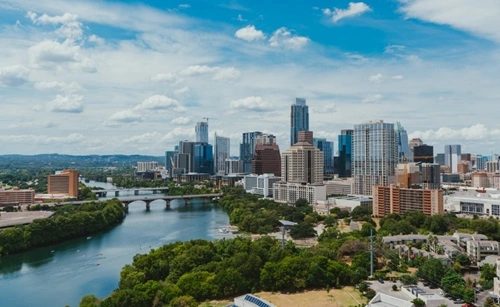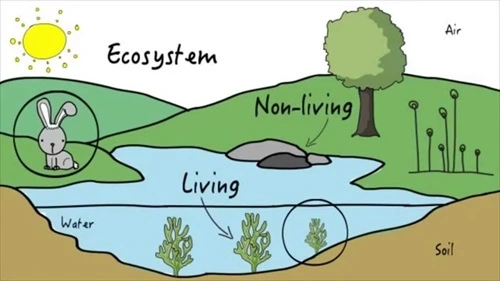Texas, known as the Lone Star State, is the second-largest state in both size and population in the United States. With its diverse landscapes, booming economy, and rich cultural heritage, Texas has become a popular destination for individuals and families seeking new opportunities. From its bustling cities to its charming rural areas, Texas offers a unique lifestyle that appeals to many. However, like any place, living in Texas comes with its advantages and challenges.
This article explores the pros and cons of living in Texas, providing insights to help you decide if it’s the right place for you.
The Pros of Living in Texas

1. Affordable Cost of Living
One of the biggest draws of living in Texas is its relatively low cost of living compared to other states. Housing, in particular, is more affordable, with median home prices significantly lower than the national average. The absence of a state income tax further enhances financial savings for residents.
2. Booming Economy and Job Opportunities
Texas boasts one of the strongest economies in the U.S., driven by industries such as energy, technology, healthcare, agriculture, and manufacturing. Cities like Austin, Houston, Dallas, and San Antonio are hubs for innovation and job growth, making Texas an attractive destination for professionals and entrepreneurs.
3. Diverse and Growing Population
Texas is known for its cultural diversity, with people from all over the world calling the state home. This diversity enriches the local culture, offering a variety of cuisines, festivals, and traditions. The state’s welcoming attitude toward newcomers has contributed to its rapid population growth.
4. No State Income Tax
Texas is one of the few states in the U.S. that does not impose a state income tax. This can result in significant financial savings, especially for high-income earners, and makes the state appealing for businesses and individuals alike.
5. Mild Winters
Texas winters are generally mild, particularly in cities like Houston and San Antonio. Residents can enjoy outdoor activities year-round without the harsh cold and heavy snowfall experienced in many northern states.
6. Vibrant Cultural Scene
Texas is a cultural hotspot, offering everything from world-class museums and performing arts to live music and local festivals. Cities like Austin, known as the “Live Music Capital of the World,” and Houston, with its renowned art and theater districts, provide endless entertainment options.
7. Delicious Food
The food scene in Texas is legendary, with barbecue, Tex-Mex, and southern comfort food taking center stage. The state is also home to a growing number of diverse restaurants, food trucks, and culinary innovations.
8. Education Opportunities
Texas has a robust higher education system, with prestigious institutions such as the University of Texas, Texas A&M University, and Rice University. The state also offers various trade schools and community colleges, catering to different educational needs.
9. Plenty of Outdoor Activities
From the rugged landscapes of Big Bend National Park to the beaches of the Gulf Coast, Texas offers a variety of outdoor activities for nature lovers. Hiking, fishing, hunting, and boating are popular pastimes in the state’s many parks, lakes, and natural areas.
10. Warm and Friendly People
Texans are known for their hospitality and friendliness. Many newcomers find it easy to integrate into their communities thanks to the welcoming and laid-back nature of the people.
The Cons of Living in Texas
1. Hot and Humid Summers
While Texas winters are mild, the summers can be extremely hot and humid, with temperatures often exceeding 100°F (38°C). This intense heat can make outdoor activities uncomfortable and lead to higher energy bills due to air conditioning use.
2. Severe Weather
Texas is prone to severe weather, including hurricanes, tornadoes, and flash floods. Coastal areas like Houston and Galveston face the threat of hurricanes, while the central and northern regions are part of Tornado Alley.
3. Urban Sprawl and Traffic
Major Texas cities, such as Houston, Dallas, and Austin, are known for urban sprawl and heavy traffic congestion. Long commutes and a lack of efficient public transportation options can be frustrating for residents.
4. Property Taxes
While Texas doesn’t have a state income tax, it compensates with higher-than-average property taxes. This can be a significant financial burden for homeowners, especially in areas with rapidly rising property values.
5. Education Disparities
While Texas is home to excellent universities and schools, the quality of K-12 education can vary widely across the state. Funding disparities and overcrowded classrooms are common issues in some school districts.
6. Limited Public Transportation
Most Texas cities are car-dependent, with limited public transportation options. While larger cities like Dallas and Houston have public transit systems, they may not be as comprehensive or convenient as those in other metropolitan areas.
7. Allergies and Air Quality
Texas is infamous for its allergy-inducing pollen, particularly during spring and fall. Additionally, air quality can be an issue in urban areas due to industrial pollution and high traffic levels.
8. Cultural Adjustment for Some
While Texas offers a welcoming atmosphere, its unique blend of cultures, traditions, and conservative values may require adjustment for some newcomers, particularly those from more progressive or urban areas.
9. Infrastructure Challenges
The rapid population growth in Texas has put a strain on infrastructure, including roads, utilities, and public services. Some areas struggle to keep up with the demand, leading to overcrowding and delays in development.
10. Water Scarcity in Some Regions
Certain parts of Texas, particularly in the west, face challenges with water scarcity. Prolonged droughts and increasing water demand have raised concerns about the sustainability of water resources in these areas.
Who Should Consider Living in Texas?
Texas is an excellent choice for:
- Families: Affordable housing and family-friendly communities make it appealing for families.
- Professionals: Thriving job markets in industries like technology, energy, and healthcare attract young professionals.
- Retirees: Warm weather, no state income tax, and vibrant communities make Texas a popular destination for retirees.
- Outdoor Enthusiasts: With diverse natural landscapes, Texas offers plenty of opportunities for outdoor activities.
However, it may not be ideal for:
- Those Sensitive to Heat: Texas summers can be challenging for people unaccustomed to extreme heat and humidity.
- Urban Transit Users: Limited public transportation options can be a drawback for those who rely on buses or trains.
- Environmental Advocates: Industrial activity and rapid urbanization may concern individuals who prioritize sustainability and environmental preservation.
Tips for Living in Texas
- Prepare for the Weather: Invest in good air conditioning, stormproof your home, and familiarize yourself with emergency weather protocols.
- Choose the Right Location: Texas is vast, with significant differences between its urban, suburban, and rural areas. Research cities and regions to find the best fit for your lifestyle.
- Explore the Culture: Embrace the state’s unique traditions, food, and entertainment options to make the most of your experience.
- Budget for Property Taxes: While you’ll save on income taxes, plan for potentially higher property taxes and other living expenses.
- Be Ready to Drive: Ensure you have a reliable vehicle, as driving is essential for getting around in most parts of Texas.
Conclusion
Living in Texas offers a mix of opportunities and challenges. Its affordable cost of living, booming economy, and cultural diversity make it an attractive destination for many. However, the extreme weather, traffic, and infrastructure concerns are factors to consider.
By weighing the pros and cons of living in Texas, you can determine if it aligns with your lifestyle and goals. For those who embrace its unique character and adapt to its quirks, Texas can be a rewarding place to call home. Whether you’re drawn by its job market, outdoor adventures, or welcoming communities, the Lone Star State offers something for everyone


